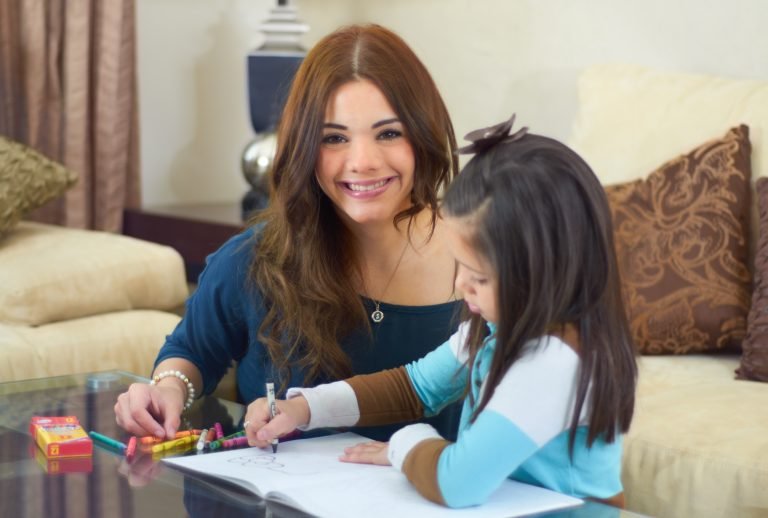If your family has an au pair, you’ve probably wondered whether it’s okay—or even possible—to take them on vacation with you. The answer? Yes, you absolutely can. In fact, many families do it and find that it works really well when planned thoughtfully.
But there are a few things to keep in mind to make sure the experience is smooth, respectful, and enjoyable for everyone involved.
Start With Clear Intentions
Before anything else, it’s important to be clear about why you’re thinking of bringing your au pair. Are they coming to work during the trip, or are they being invited as a guest?
There’s no right or wrong answer here. However, as one of the most established au pair agencies, https://www.goaupair.com/, points out, setting expectations is a key part of building a successful relationship between host families and au pairs. If they’re coming in a working capacity, then their duties, hours, and compensation should be clarified. If they’re coming as part of the family just for fun, then they should have free time and freedom, just like everyone else.
Open communication is the key here. Don’t assume how your au pair feels about it; ask them.
What Should Be Covered?
If the au pair is working on the trip, the family should pay for:
- Travel expenses – This includes flights, train tickets, or any transport that gets them from home to the destination.
- Accommodation – A proper sleeping space, ideally separate from the children, so they can rest properly.
- Meals – All meals while they’re working should be included.
- Any required work-related expenses – For example, tickets to attractions if they’re supervising the children during that outing.
If they’re not working, but coming along as a guest, you’re not legally required to cover all expenses, but most families do. After all, if you’re inviting someone to join your trip, it’s only fair to make sure they’re not out of pocket for it.
Set a Realistic Schedule
Vacations are often more relaxed than regular weeks at home. But if your au pair is working during the trip, there still needs to be a schedule.
You might need more help on a trip than usual, especially if you have multiple children or if you’re attending a special event like a wedding. That’s fine, but don’t assume your au pair is available around the clock. Stick to their regular hours as much as possible and build in downtime. They’re entitled to time off each day, even while away from home.
It’s also worth thinking ahead about how your own plans might affect their time. For example, if you’re planning a romantic dinner one evening or a child-free hike, let them know well in advance. The more notice, the better.
Think About Their Experience Too
This one’s often overlooked. Yes, the main goal of the trip might be family time or an event, but for your au pair, this is also a chance to see a new part of the country, or maybe even the world.
So ask yourself:
Will they get time off to explore on their own?
Are they being included socially in a way that feels respectful and comfortable?
Will they get a real break, or is it just work in a different place?
Au pairs are cultural exchange participants, not just childcare workers. They’re here to learn, grow, and experience. Bringing them on a trip can absolutely be part of that, but only if they get the chance to enjoy it.
Tips to Make It Work Smoothly
Planning ahead can make the whole experience better for everyone. Here’s what helps:
- Discuss the details early – Give your au pair time to think about whether they want to come. Don’t spring it on them last minute.
- Put things in writing – It doesn’t need to be a formal contract, but having the plan written down helps avoid confusion later.
- Be flexible – Vacations don’t always go as planned. If things change, check in and adjust together.
- Respect their space – Just like you need downtime on vacation, so do they. Make sure there’s space for privacy and rest.
- Encourage independence – If they want to explore the area during their free time, support that. It’s part of the cultural experience.
Legal and Program Guidelines
If your au pair is on an official program, there are a few rules that still apply while you’re traveling:
- They can only work up to 45 hours per week and no more than 10 hours per day.
- They must receive at least one full day off per week.
- They need their own bed and a private sleeping space, even while traveling.
- You can’t deduct any of their weekly stipend to cover trip costs. That payment stays the same, even on vacation.
These rules aren’t meant to complicate things. They’re there to make sure au pairs are treated fairly and consistently, no matter where they are.
When It Might Not Be a Good Fit
Sometimes, it just doesn’t make sense to bring an au pair on vacation, and that’s okay too. Maybe the accommodation is too tight, the schedule is packed, or they’d simply rather stay home.
In that case, make sure they’re supported while you’re away. They shouldn’t feel isolated or unsure about what to do. Let them know what to expect during your absence, whether they’ll have time off, or if they’re expected to help with household tasks or routines. Set them up with clear communication and emergency contacts.
A Shared Experience, Not Just a Trip
Done right, a vacation with your au pair can be one of the highlights of their time with your family. It’s a chance to share new places, try new things, and create memories together.
However, it only works when everyone is treated with respect and when the balance between work and leisure is clear.
A few honest conversations and thoughtful planning can turn what might seem like a tricky situation into something really special. Whether they’re coming to help or simply to enjoy, involving your au pair in family travel can deepen your connection and add something meaningful to both sides.
It’s Absolutely Possible
You can bring your au pair on vacation. Not only that, you can do it in a way that’s enjoyable, fair, and rewarding. It takes some planning and open communication, but it’s well within reach.
Think of it less like a logistical challenge and more like a chance to share a great experience. With mutual respect and a bit of flexibility, it can be a win for everyone.

































